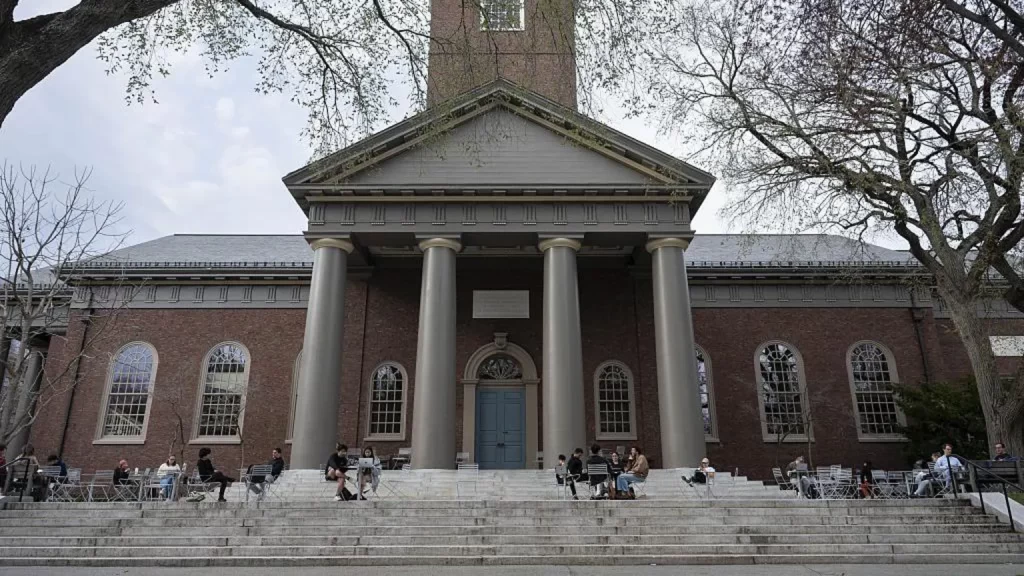
Harvard University, long regarded as the pinnacle of academic excellence and moral leadership, now stands at a crossroads.
At the heart of the controversy is a simple but serious question: Will Harvard accept its mistakes—or will it double down on them, even at the cost of public trust and federal funding?
In recent months, the U.S. government has issued firm demands that the university take concrete steps to:
- Restore civil liberties for students
- Uphold diversity of thought
- Address a rising tide of antisemitism on campus.
These are not abstract accusations. Harvard’s own internal report—commissioned by the university—offered a damning indictment: Jewish students feel unsafe, marginalized, and unheard. The report did not mince words. It highlighted a “permissive atmosphere” that allows hostility and harassment to go unchecked, especially when it comes from faculty and student groups toward Jewish peers.
In response, rather than accept the findings and begin meaningful reform, Harvard has taken a starkly oppositional stance. The university has filed a lawsuit to preserve its current unfair, and perhaps illegal, practices, challenging the government’s authority to tie federal funding to compliance with civil rights expectations.
In essence, Harvard is suing to continue down a path that many see as discriminatory, ideologically rigid, and out of touch with the broader American values of fairness and inclusion.
Meanwhile, a striking ideological contradiction plays out on campus: a growing embrace of socialist and communist rhetoric among students and some faculty, even as the institution itself remains deeply embedded in elite, capitalistic structures.
From billion-dollar endowments to lucrative donor ties and executive-style compensation, Harvard is capitalism personified. Yet on the ground, it encourages teachers that teach students to dismantle free markets and impose fascist controls. This ideological hypocrisy erodes trust. It signals not a commitment to open dialogue, but an uneven playing field where only certain viewpoints are amplified.
Equally concerning is Harvard’s continued resistance to ending race-based discrimination in admissions and promotions, despite a clear ruling by the U.S. Supreme Court deeming such practices illegal. Instead of shifting toward race-neutral, merit-based evaluations, Harvard has taken steps to preserve the spirit of racial preferences under new guises—defying both the letter and the spirit of the law. This defiance not only undermines equal opportunity but also reinforces a perception that Harvard sees itself as above democratic accountability.
This is not merely a campus issue. Harvard, like many elite institutions, receives significant federal funding—from research grants to student aid. That funding comes from taxpayers and great value is returned to the public. It is entirely reasonable, then, for the public to expect that Harvard maintain an environment of non-discrimination, intellectual pluralism, and basic safety for all students.
The idea that a university can accept public money while ignoring public responsibility is not just flawed—it’s dangerous.
The refusal to embrace diversity of thought is particularly troubling. A healthy academic institution must be a place where dissent is protected, where students are encouraged to challenge orthodoxy, and where unpopular views can be aired without fear of reprisal. But many critics argue that Harvard has become an echo chamber—ideologically uniform, hostile to dissenters, and quick to punish those who question prevailing narratives.
This moment offers Harvard an opportunity—if it chooses to take it. Accepting mistakes is not a sign of weakness; it is a mark of maturity and integrity. The university can choose transparency over defensiveness, reform over retrenchment. It can listen to students across the spectrum, not just those whose views align with campus majorities. It can reaffirm its commitment to civil liberties and demonstrate that it is capable of self-correction.
To do otherwise would be to betray its legacy—and the very mission it claims to uphold.
Harvard must accept the mistakes it made and find its way back to open inquiry and fairness.



